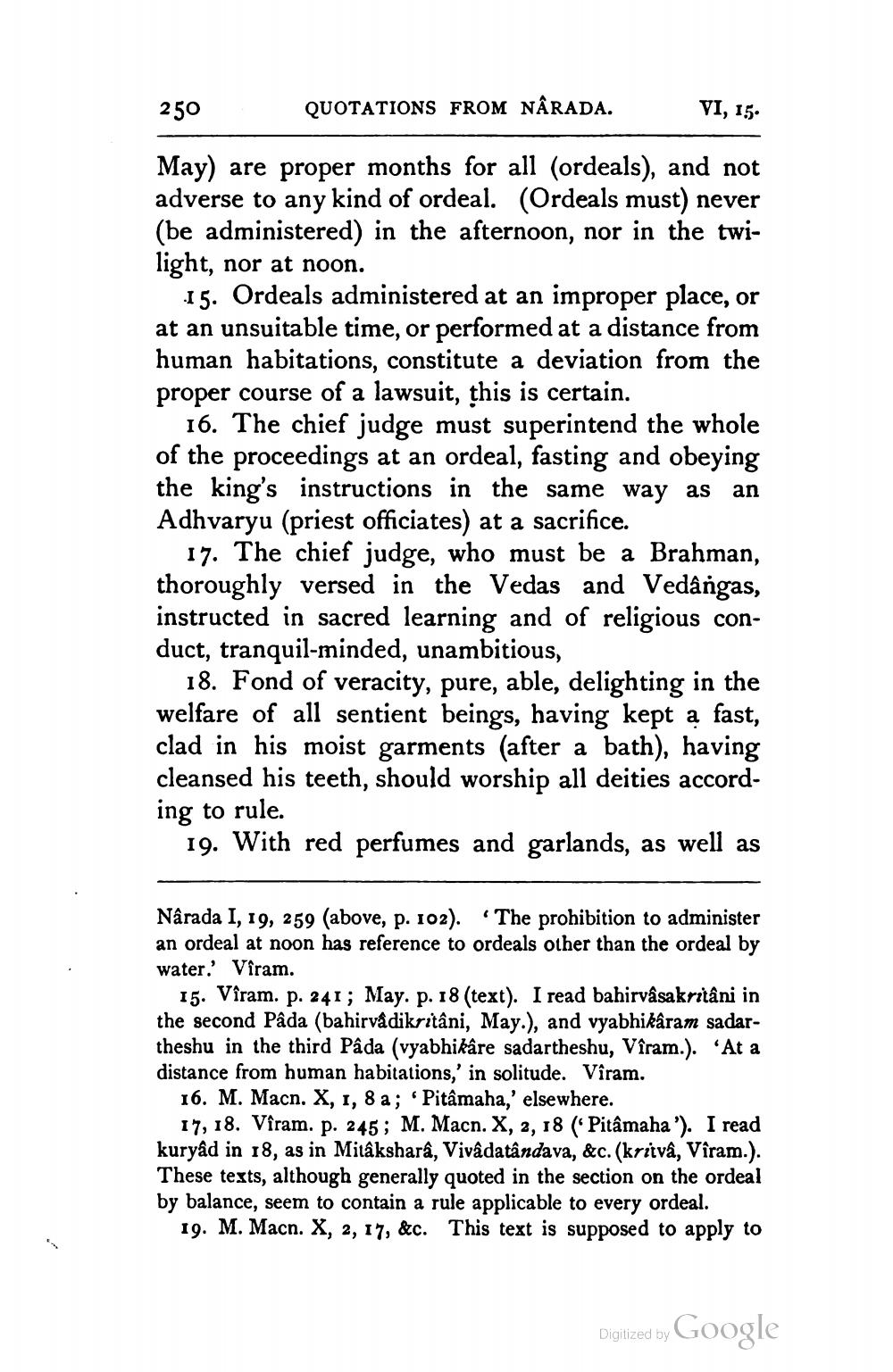________________
250
QUOTATIONS FROM NÂRADA.
VI, 15.
May) are proper months for all (ordeals), and not adverse to any kind of ordeal. (Ordeals must) never (be administered) in the afternoon, nor in the twilight, nor at noon.
15. Ordeals administered at an improper place, or at an unsuitable time, or performed at a distance from human habitations, constitute a deviation from the proper course of a lawsuit, this is certain.
16. The chief judge must superintend the whole of the proceedings at an ordeal, fasting and obeying the king's instructions in the same way as an Adhvaryu (priest officiates) at a sacrifice.
17. The chief judge, who must be a Brahman, thoroughly versed in the Vedas and Vedângas, instructed in sacred learning and of religious conduct, tranquil-minded, unambitious,
18. Fond of veracity, pure, able, delighting in the welfare of all sentient beings, having kept a fast, clad in his moist garments (after a bath), having cleansed his teeth, should worship all deities according to rule.
19. With red perfumes and garlands, as well as
Nârada I, 19, 259 (above, p. 102). "The prohibition to administer an ordeal at noon has reference to ordeals other than the ordeal by water.' Vîram.
15. Vîram. p. 241; May. p. 18 (text). I read bahirvâsakritâni in the second Pâda (bahirvadikritâni, May.), and vyabhikâram sadartheshu in the third Pada (vyabhikâre sadartheshu, Vîram.). "At a distance from human habitations,' in solitude. Vîram.
16. M. Macn. X, 1, 8 a; Pitâmaha,' elsewhere.
17, 18. Vîram. p. 245; M. Macn. X, 2, 18 ( Pitâmaha'). I read kuryâd in 18, as in Mitâkshara, Vivâdatândava, &c. (kritva, Vîram.). These texts, although generally quoted in the section on the ordeal by balance, seem to contain a rule applicable to every ordeal.
19. M. Macn. X, 2, 17, &c. This text is supposed to apply to
Digitized by Google




